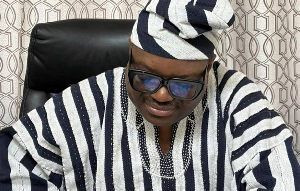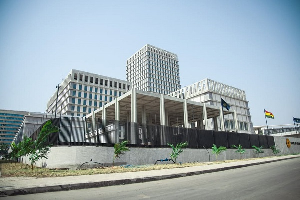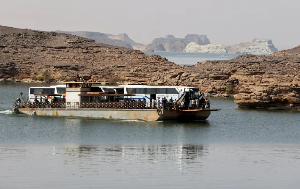Ghanaians have been urged to refrain from unproductive utterances and the politicization of the one District One Factory programme and rather support government's effort to make the programme a success.
The National Coordinator of the One District One Factory programme (1D1F), Mrs Gifty Ohene-Konadu who gave the advice said the programme has more benefits than challenges as perceived by some people and urged the youth with innovative ideas to particularly take advantage of the programme and seek support to establish factories.
Mrs Ohene-Konadu said this during a conference on "Economic growth opportunities in the Western Region'.
The conference organized by the Western Region Coastal Foundation (WRCF) was on the theme "Leveraging lessons from the oil sector to maximize opportunities from the One District One Factory initiative ".
It was to among others assess the extent the oil and Gas sector has benefited and limited local business growth and lessons learnt 10 years on.
The conference was also to build understanding of the one District One Factory programme and other government initiatives as well as identify and discuss the most promising sectors for economic growth in the Western Region.
The participants were also to identify and understand how businesses, communities and industries could position themselves to benefit from the 1D1F programme and other economic initiatives.
Mrs Ohene-Konadu stated that after the launch and sod cutting for the first factory in August there has been keen interest by the private sector and other stakeholders to support the government to achieve the objectives of the initiative.
"Hundreds of proposals have been received and a lot of traditional rulers have allocated lands to support the programme ".
Additionally, she said both local and international banks have committed funds to support the project and have even agreed to the single digit interest rate on loans and long term financing agreements of seven years and beyond.
Mrs Ohene-Konadu commended the traditional authorities and MMDAs for the high level of enthusiasm and readiness to support the vision of the President.
She noted that the Western Region abounds in rich products that could be turned into valuable items to solve some of the problems that confront the county.
The National Coordinator pointed out that the institution of the 1D1F by the government was to help address some of development challenges at the district level in order to have a swift economic growth in such places.
For his part Mr Stephan Miezan, Regional Chairman, Ghana National Chamber of Commerce, said the Western Region has a lot of development potentials which could easily fall under the 1D1F programme.
He said a cocoa and coffee processing factory could be established in the Region as well as a fertilizer manufacturing plant.
Mr Miezan said the tourism potentials of the Region could also be developed by developing Eco and national parks such as a canopy walkway in the Ankasa forest and also promote beach surfing.
He said the mining sector could also be looked at by establishing a minerals refinery in the Region as well as a mini oil refinery and hydroelectric dams on the Pra, Ankobra and Tano rivers.
Miezan noted with concern that despite the numerous development potentials that were available in Region it was still challenged by illegal mining, inadequate vocational /technical training institutions, access to credit, bad roads and deforestation.
Mr Joseph Chognuru, acting Chief Director of the Ministry of Special Development Initiatives’ Infrastructure for Poverty Eradication Programme (IPEP), said as much as the Western Region was endowed with natural resources, poverty remained a challenge especially in the Wassa Amenfi Central, Bodi and Mpohor districts.
He said under the IPEP the 26 constituencies in the Region would within four years be provided with resources for pro-poor infrastructure development.
He said there would also be an increase in social amenities such as potable water, toilets, education and healthcare centres within the Region.
General News of Wednesday, 11 October 2017
Source: ghananewsagency.org
Do not politicize One District, One Factory programme - Ohene-Konadu
Entertainment

Chez Amis CEO addresses NACOC arrest allegations
Opinions










